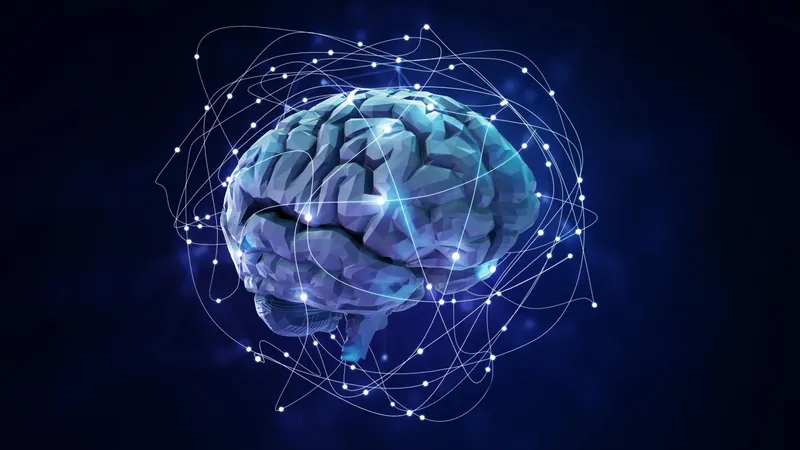
Unlocking the Brain: This Tiny Molecule May Revolutionize Treatment for Alzheimer's and Memory Disorders
2025-07-12
Author: Siti
A Breakthrough Discovery in Brain Health
Exciting new research has unveiled a tiny brain molecule that could be pivotal in treating Alzheimer's, Parkinson's, and traumatic brain injuries. Published in the journal Science Advances, this groundbreaking study led by a Rutgers University-New Brunswick professor reveals the hidden potential of a brain protein called cypin.
Revolutionizing Memory and Learning
Cypin plays a crucial role in enhancing communication between neurons by promoting the tagging of vital proteins at synapses. These tiny gaps between brain cells are essential for transmitting signals, and proper tagging ensures that proteins are in the right place to facilitate effective communication. Bonnie Firestein, the distinguished professor leading the research, emphasizes that focusing on cypin could lead to therapies that enhance memory and cognitive abilities. "Our findings suggest cypin is a key player in developing treatments for neurodegenerative diseases and brain injuries," she said.
How Cypin Works: The Mechanics of Brain Function
Firestein’s extensive research over the past two decades has revealed that cypin adds special tags to proteins within synapses, ensuring they function properly. Furthermore, cypin’s interaction with a protein complex known as the proteasome slows down the breakdown of proteins, leading to a beneficial accumulation that enhances neuronal communication.
The Power of Increased Protein Levels
As cypin levels rise, so do the amounts of crucial proteins at synapses, which are vital for effective neuron communication and the strengthening of memories. Notably, cypin boosts the activity of another protein, UBE4A, further influencing the tagging and positioning of synaptic proteins.
From Lab to Real-World Impact
Despite being basic research, the insights from this study are poised for clinical application. Firestein is already engaged in translating these lab discoveries into practical treatments that could significantly enhance human health.
Implications for Alzheimer's and Beyond
Cypin's essential role in maintaining healthy brain function makes it a promising target for therapies aimed at neurodegenerative diseases and traumatic brain injuries. Conditions like Alzheimer's and Parkinson's often disrupt synaptic function, and cypin’s influence on synaptic plasticity suggests it could help restore balance.
Support and Collaboration in Research
This pioneering study was supported by the National Institutes of Health, the Coalition for Brain Injury Research, and generous private donors. A collaborative effort involving scientists from Rutgers and Michigan State University has further strengthened this vital research.
A Future of Hope for Brain Health
The implications of cypin's discovery could change the landscape of treatments for Alzheimer's and other cognitive impairments. As research progresses, this tiny molecule may soon unlock new pathways to healthier brains and improved memory for millions worldwide.



 Brasil (PT)
Brasil (PT)
 Canada (EN)
Canada (EN)
 Chile (ES)
Chile (ES)
 Česko (CS)
Česko (CS)
 대한민국 (KO)
대한민국 (KO)
 España (ES)
España (ES)
 France (FR)
France (FR)
 Hong Kong (EN)
Hong Kong (EN)
 Italia (IT)
Italia (IT)
 日本 (JA)
日本 (JA)
 Magyarország (HU)
Magyarország (HU)
 Norge (NO)
Norge (NO)
 Polska (PL)
Polska (PL)
 Schweiz (DE)
Schweiz (DE)
 Singapore (EN)
Singapore (EN)
 Sverige (SV)
Sverige (SV)
 Suomi (FI)
Suomi (FI)
 Türkiye (TR)
Türkiye (TR)
 الإمارات العربية المتحدة (AR)
الإمارات العربية المتحدة (AR)